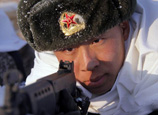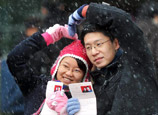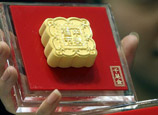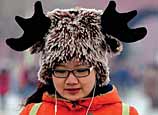
However, with improving trade data and developed countries introducing a quantative easing policy, expectations for a stronger yuan re-emerged, said Zhao Qingming, a China Construction Bank economist.
Lian Ping, an economist with the Bank of Communications, said there are no conditions for any sharp appreciation of the yuan. Since China started to reform its currency exchange rate regime in 2005, the yuan has risen more than 30 percent.
The current account trade surplus only accounted for less than 3 percent of the GDP at the end of 2011, much lower than a peak of 10 percent in 2007.
In the future, the proportion is expected to stay below 3 percent as overseas demand will remain recessive, which will further reduce pressure for the yuan to appreciate, Zhao said.
Liu Dongliang, an analyst with the China Merchants Bank, expects the yuan's two-way floating flexibility to become more apparent in 2013.
The stabilizing Chinese economy will reduce the possibility of yuan's depreciation. However, lackluster external demands and exports will also restrain the space for the yuan's hefty appreciation, he noted.
According to Zhao Qingming, due to western countries' quantative easing policy, international capital will flow back to emerging nations such as China.
















 "Food is the paramount necessity of life", so neither trivial nor minor is our daily eating.
"Food is the paramount necessity of life", so neither trivial nor minor is our daily eating.


![]()
